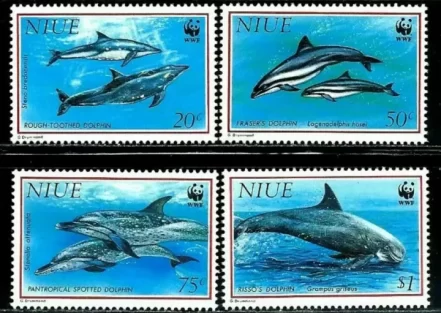Niue year 1993 stamps – Fauna / Marine life – Dolphins Complete set MNH**
Niue 1993 WWF Fauna / Marine Life – Dolphins Complete Set:
- Issuing Country: Niue
- Year of Issue: 1993
- Theme: WWF Endangered Species – Pacific Dolphins / Marine Life
- Contents: A complete set of 4 stamps.
- Catalog Numbers:
- Scott Catalog: The set is generally referenced under the numbers Scott #651-654.
- Stanley Gibbons (SG) Catalog: The set is listed as SG #763-766.
- Species: The stamps feature various Pacific Dolphin species, as is typical for a WWF issue focusing on a specific region.
As a WWF issue, the stamps typically feature the WWF panda logo and the denomination of the stamp. Specific face values for this 1993 issue would be in New Zealand Dollars (NZD) or the Niue Dollar equivalent at the time of issue, but they are generally identified by their catalog numbers.












Reviews
There are no reviews yet.